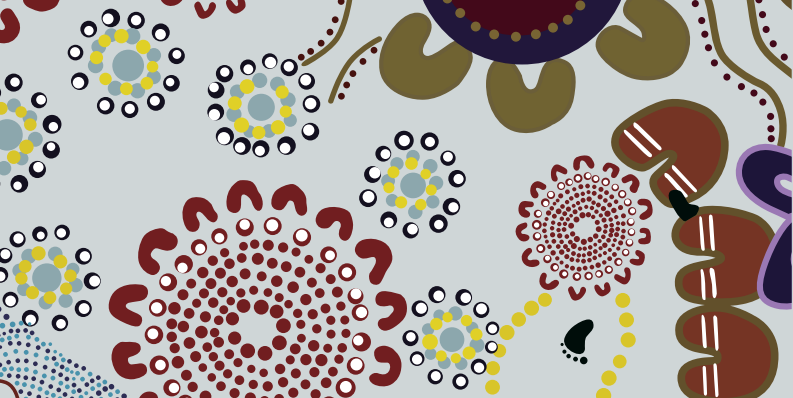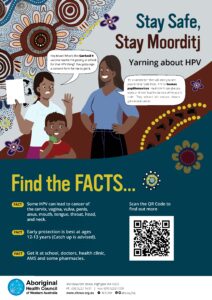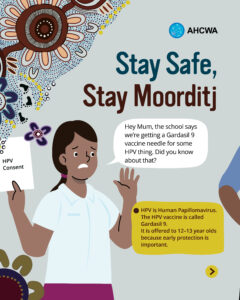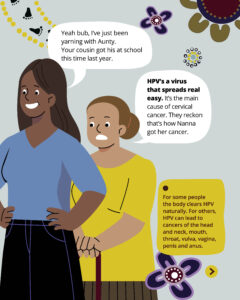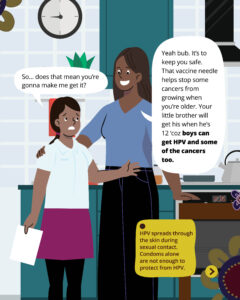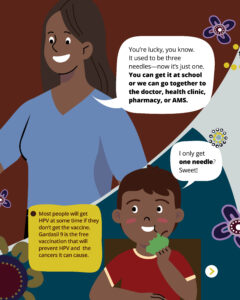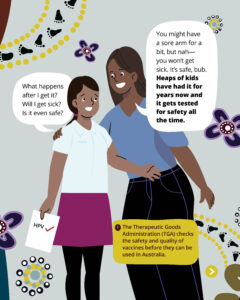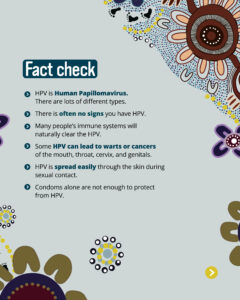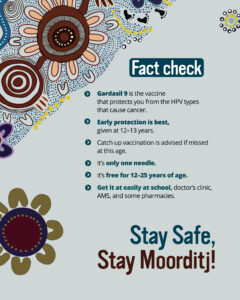Stay Safe Stay Moorditj
Stay Safe, Stay Moorditj is an AHCWA campaign developed in consultation with the WA Cervical Cancer Prevention Program and the Cancer Council of WA.
HPV is Human Papillomavirus. There are lots of different types, and there are often no signs that you have HPV. Many people’s immune systems will naturally clear the HPV, but some HPV can lead to warts or cancers of the mouth, throat, cervix, and genitals. HPV is spread easily through the skin during sexual contact, and condoms alone are not enough to protect from HPV.
Gardasil 9 is the vaccine that protects you from the HPV types that cause cancer. Early protection is best, given at 12–13 years, and a catch-up vaccination is advised if missed at this age. It’s only one needle and is free for anyone 12–25 years of age. You can easily get it at school, doctor’s clinics, AMS, and some pharmacies.
We acknowledge all people with lived experience of Human Papillomavirus (HPV) and the sickness it can sometimes bring. We remember and honour those we have lost to cancers caused
by HPV, holding them and their families in our koort (hearts). We thank everyone working in prevention, care, and treatment—walking alongside community to improve health
and wellbeing for our people.
Booklet
HPV Stay Safe Stay Moorditj Booklet
Poster
HPV Stay Safe Stay Moorditj Poster
Social Media Tiles
HPV Education Session and Recording
Useful Links and Information
For more information about HPV, Gardasil 9, HPV related cancers, follow the links below, yarn with your AMS staff and check with your children’s school.
WA Cervical Cancer Prevention Program—WACCPP
HPV vaccine information—Healthy WA
Samantha’s story – Surviving HPV related cancer
Vaccines overview—Therapeutic Goods Administration
Human Papillomavirus (HPV) and cancer—Cancer Council Western Australia
Human papillomavirus—WA Department of Health (DOH)
Cervical cancer—Cancer Council Western Australia
Adolescentvaccinations—Sharing Knowledge About Immunisation (SKAI)
Your cervical screening test-Preventing cervical cancer—WA Cervical Cancer Prevention Program
Human papillomavirus—National Centre for Immunisation Research and Surveillance(NCIRS)

